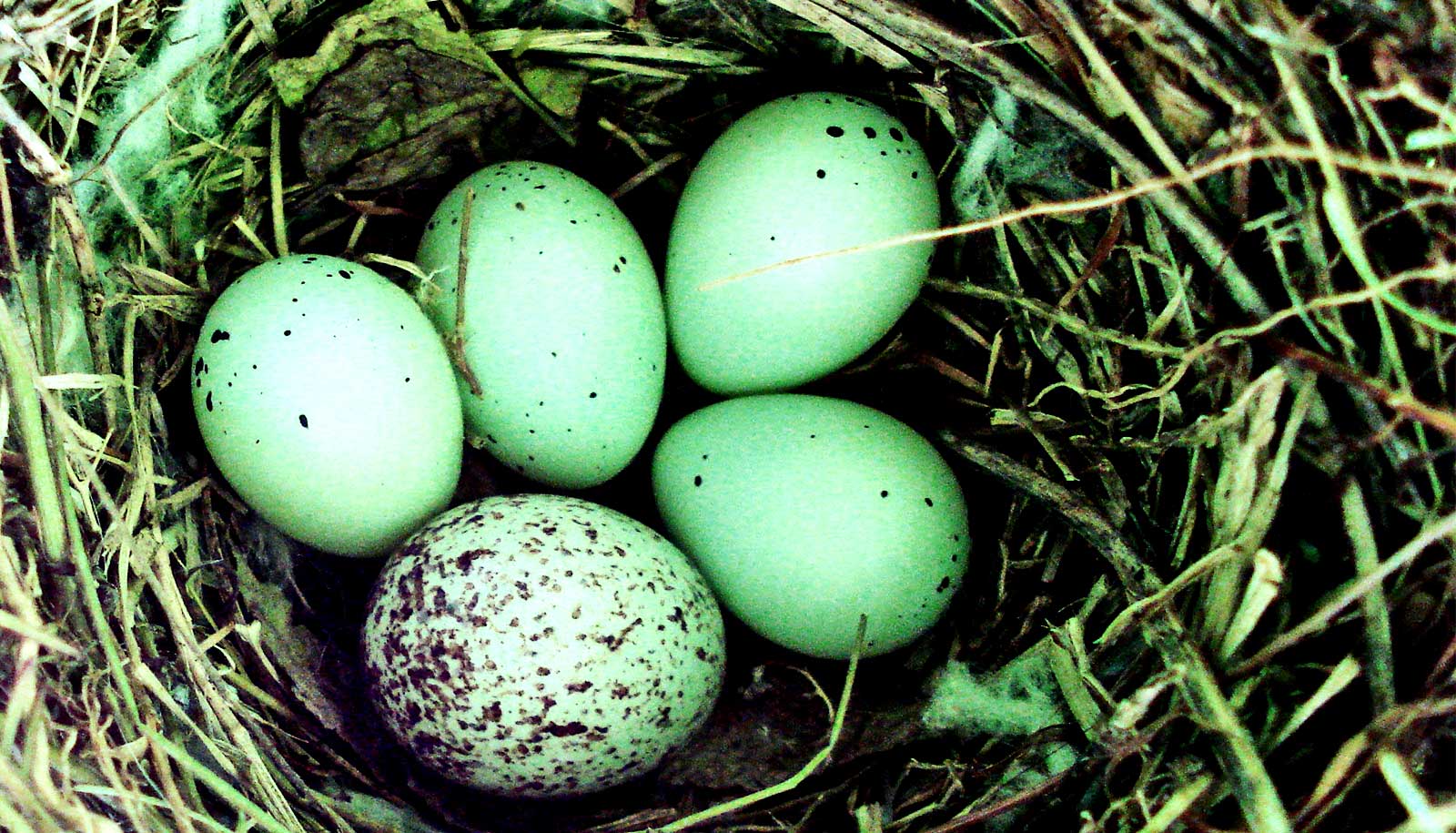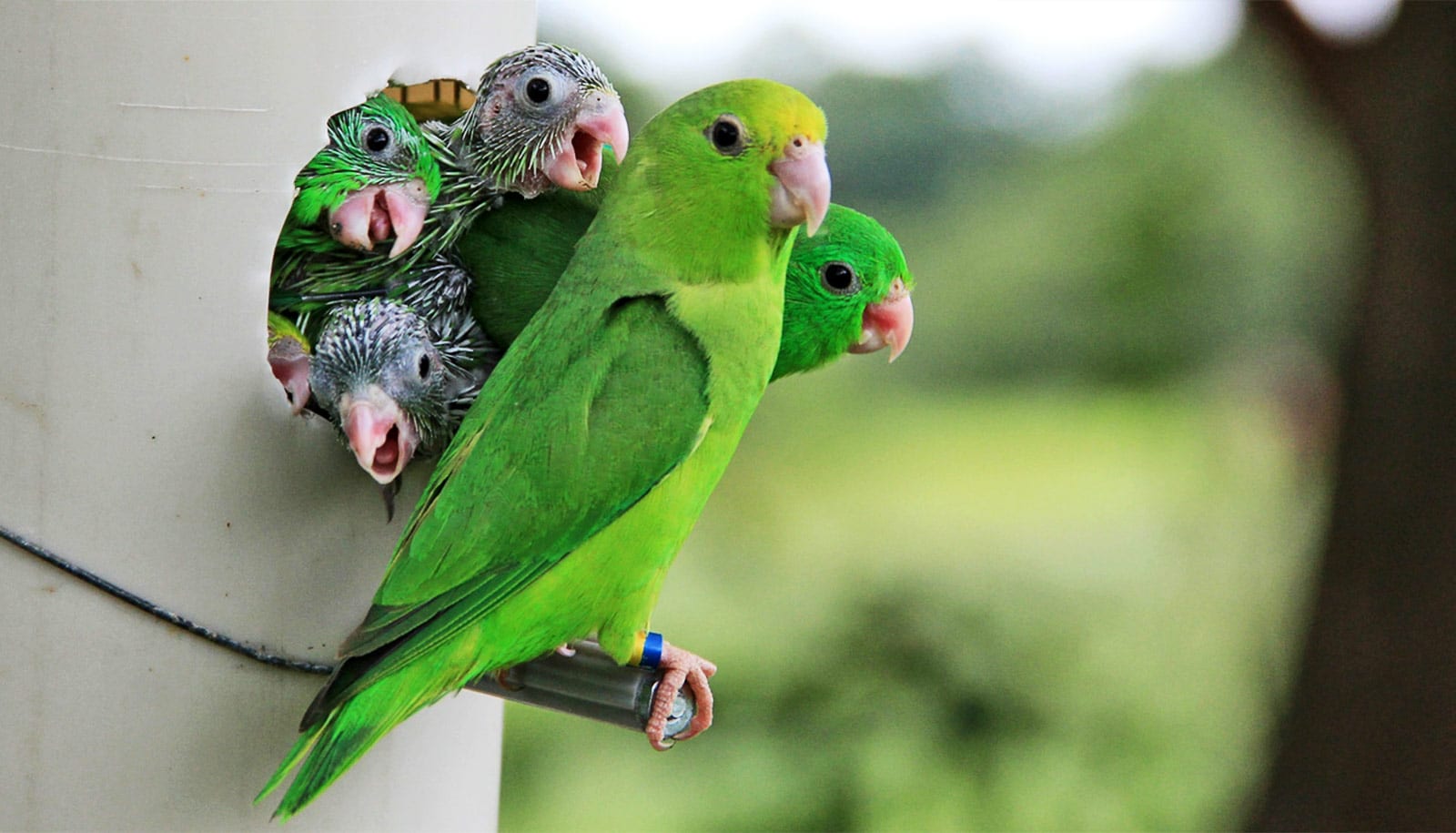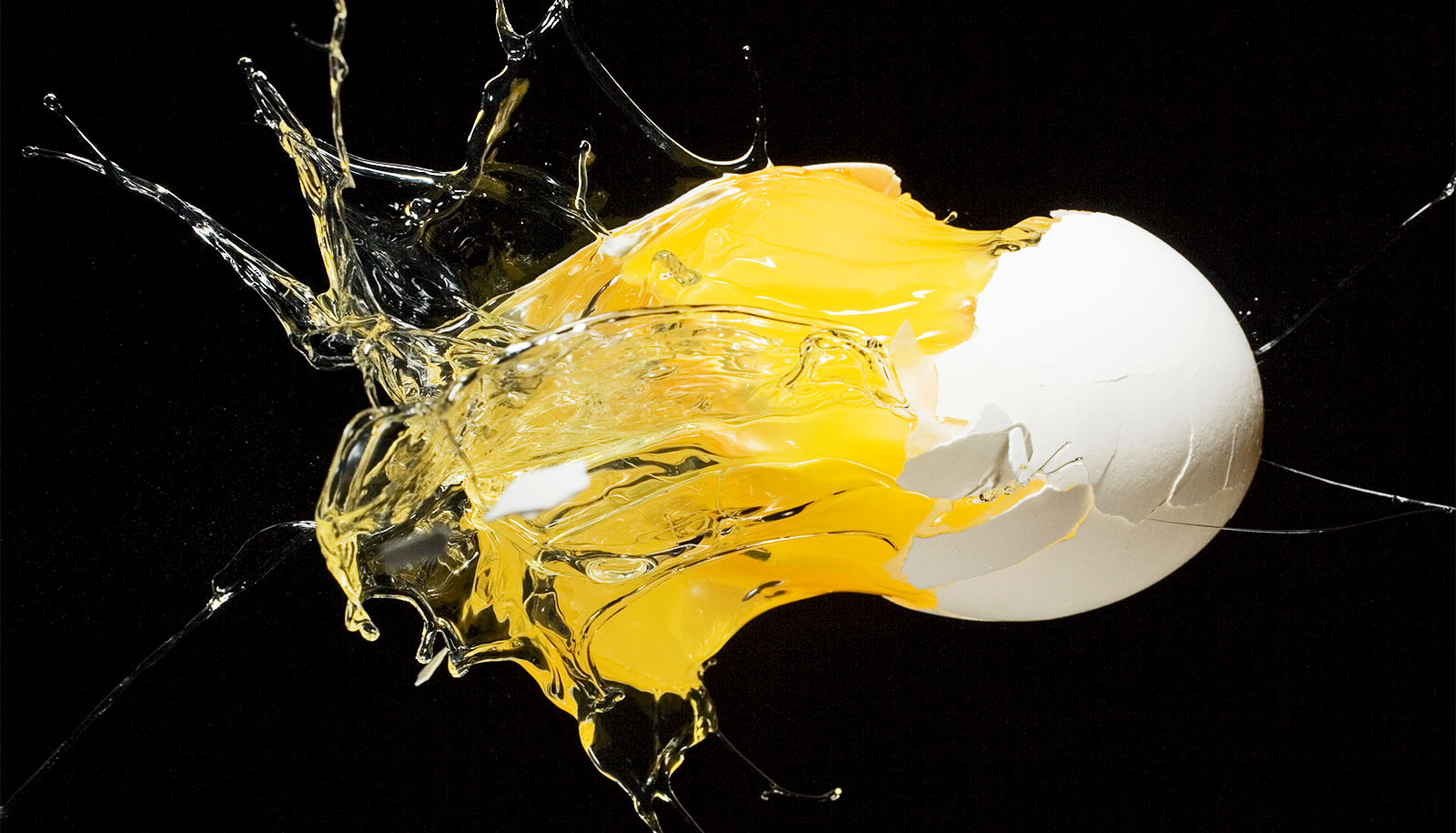
"With bet-hedging in the choice of hosts, parasites are at least able to increase the chances that one—or a few—of the surrogate parents they choose will end up behaving in the optimal way," says Carlos Botero.(Credit: Julie Falk/Flickr )
In risky times, parasitic birds lay eggs in more baskets
To boost their odds of survival in unpredictable habitats, birds known as "brood parasites" hedge their bets by spreading eggs across other birds' nests.
Faced with uncertainty, birds called brood parasites literally put their eggs in more baskets, researchers report.
Brood parasites are birds that are known to lay their eggs in other birds’ nests. Cowbirds and cuckoos are among the most famous examples of this group.
“When brood parasites face increased ecological risks—for example, greater climatic uncertainty in their environment, or greater uncertainty with regards to the availability or behavior of their hosts—they turn to bet-hedging,” says Carlos Botero, assistant professor of biology at Washington University in St. Louis and senior author of a new study in Nature Communications .
“A bet-hedging strategy involves making some or sometimes even many ‘wrong’ choices.”
“In other words, when it is difficult to predict the ideal host, parasites literally lay their few precious eggs in more than one basket,” he says. “This means increasing not just the number of different host species they use, but also expanding the diversity of taxonomic families that they choose as hosts.”
A birder himself, Botero says he is fascinated by things animals do that fall outside the boundaries of what some think of as “typical”—like brood parasitism.
“Parasite mothers can’t really do much about the behaviors that their hosts will display as surrogate parents,” Botero says. “With bet-hedging in the choice of hosts, parasites are at least able to increase the chances that one—or a few—of the surrogate parents they choose will end up behaving in the optimal way.”
Botero and his colleagues observed a pattern they considered striking.
The researchers aggregated environmental, parasite, and host species data associated with 84 species of obligate avian brood parasites from 19 genera and five different bird families. Their list covered approximately 86% of all known parasitic bird species.
For all of these birds, host behavior is critical when it comes to countering environmental threats. Even small differences in the nest architecture, habitat selection, breeding timing, or incubation behavior of the chosen surrogate parents can have life or death implications for young parasitic chicks.
A brood parasite’s properly “hedged” portfolio must include a reasonable diversity of host types to ensure that at least some reproductive success is achieved—no matter what environmental conditions they experience in any given year.
But bet-hedging does come at a cost, the researchers say.
“A bet-hedging strategy involves making some or sometimes even many ‘wrong’ choices,” Botero says. “For example, for years in which the behaviors, timing, and nest type of a given host clearly work better than those of other species, it would be clearly ideal to stick with that option and avoid wasting eggs on others.”
The problem is, parasitic birds that live in variable and unpredictable environments can’t know at the onset which option will work best that year.
“Parasitic mothers that diversify their egg-laying choices may not contribute as many offspring to any given generation as they would have if they had chosen the best host type that year,” Botero says. “But, over time, they will end up contributing a much larger total number of offspring to future generations by fledging some offspring every year.
“It is this long-term vision that allows bet-hedging lineages to prevail and to steer the course of evolution so that in the end, everyone in their species bet-hedges.”
Additional coauthors are from the University of Illinois Urbana-Champaign and Columbia University.
Source: Washington University in St. Louis
The post In risky times, parasitic birds lay eggs in more baskets appeared first on Futurity .
Share this article:
This article uses material from the Futurity article, and is licenced under a CC BY-SA 4.0 International License. Images, videos and audio are available under their respective licenses.
Related Articles:
Why parrotlets adopt (or kill) their rivals’ babies
May 7, 2024 • futurityEggshell discovery could improve torn ligament replacement
Feb. 20, 2024 • futurityLinks/images:
- https://doi.org/10.1038/s41467-020-18038-y
- https://www.futurity.org/birds-cooperative-breeding-1468062/
- https://www.futurity.org/eggs-brood-parasites-944812/
- https://source.wustl.edu/2020/08/meet-hedge-fund-managers-of-avian-world/
- https://www.futurity.org/brood-parasites-birds-eggs-2431172/
- https://www.futurity.org


